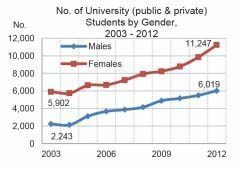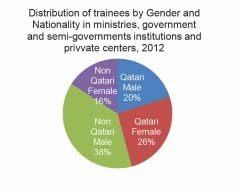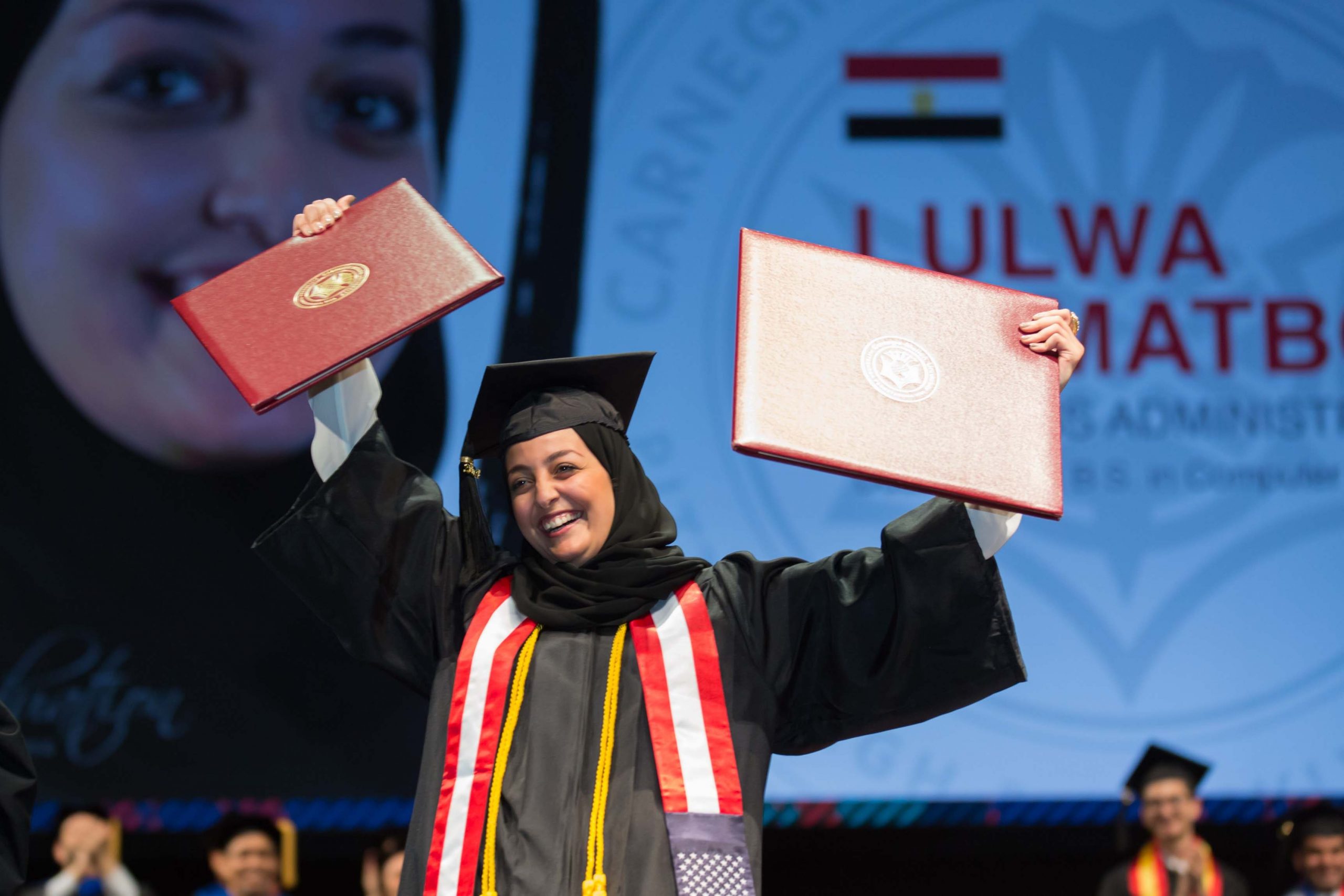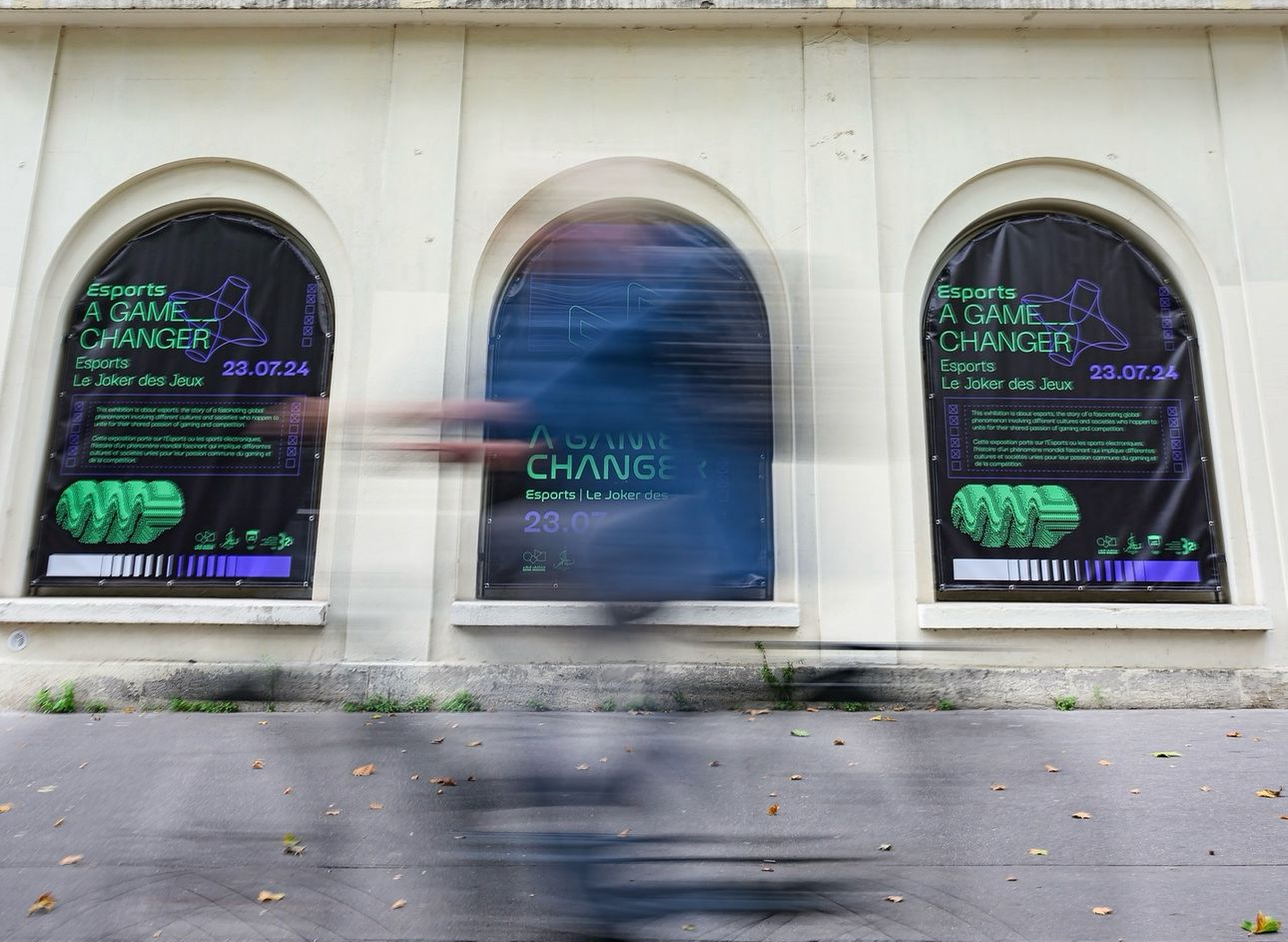
There were nearly twice as many female students enrolled in universities in Qatar in 2012 as males, and nearly two-thirds of all graduates were women, according to official figures recently released by the Ministry of Development, Planning and Statistics.
But while expat and Qatari females are still more likely to enroll in and graduate with university degrees here, their male counterparts still outperform them when it comes to success in business.

The latest edition of the ministry’s biennial report, Qatar Social Statistics 2003-2012, charts statistical trends in Qatar over the past decade.
Figures show that more than 17,000 expat and Qatari students were enrolled in courses across 14 public and private universities in Qatar. Some 11,247 were females, and 6,019 were males.
These figures are more than double the number of university students in 2003, when just 8,145 people were pursuing higher education. However, the number of universities and expats in the country has grown significantly since then.
The report also shows that women accounted for 60 percent of all university graduates in the country.
It added that “female students tended to complete their education, unlike male students, who often entered the labor force right after high school.”
Qatar’s National Development Strategy 2011-16 highlights the need for more men to further their education, and to incentivize the private sector to bring more Qataris on board.
International scholarships
When it comes to furthering their education, female Qatari students were much more likely to remain here than to take up overseas opportunities, reflecting national customs and traditions.
A total of 370 university students were awarded international scholarships in 2011-12 – with 80 percent of these (295) going to male students and just 20 percent (75) taken up by female students.
Management and economics was the most popular field of study for those international scholarship students, with 183 of them choosing it for further study. This was followed by arts and science (82 students) and engineering for 67 students.
While the report doesn’t give figures for the number of Qatar-based scholarships, it does note that “female students were more interested in getting local scholarships rather than overseas ones.”
Women in the workforce
Despite the number of female graduates, Qatari men are still more likely to get ahead in the workplace.

Of 70,000 national employees who received training in national and private institutions, 58 percent of them were men and 42 percent women – although Qatari women were more likely to receive training than Qatari men (26 percent, compared to 20 percent of the total number of people trained).
And Qatari women made up one-third (33 percent) of the total number of Qatari project and business managers in government and private corporations.
In 2012, the vast majority of Qataris preferred to work in the public sector, with Qatar nationals comprising just 0.8 percent of the private sector work force, the report states. The breakdown includes:
- That 71 percent of employed Qataris worked in government departments. Of those, 67 percent were male. Meanwhile, 13 percent of the employed Qatari workforce worked for government corporations and companies. Of those, 70 percent were male.
- The gender gap is less pronounced in the private sector. Some 43 percent of the total number of Qatari employees were national women, and 57 percent were Qatari men.
- Of the total number of working Qatari women in 2012, the majority (51 percent) were employed in clerical jobs, the report noted.
- The legal world in Qatar remains male dominated, with female trainee lawyers comprising 12.5 percent of the total number of Qatari lawyers under training in 2012.
- Women are taking more senior legal positions, but there are only two female Qatari judges, and only 13.7 percent of the total number of Qatari lawyers are women.
However, the number of Qatari women employed in what the report classifies as “economic activities” – including industries such as mining and quarrying, manufacturing, electricity and water, construction, retail trade and personal goods services – has risen in recent years.
In 2001, just 3.6 percent of the total number of working Qatari women were employed in this sector. In 2012, this percentage had almost tripled, to 9.1 percent.
Thoughts?







